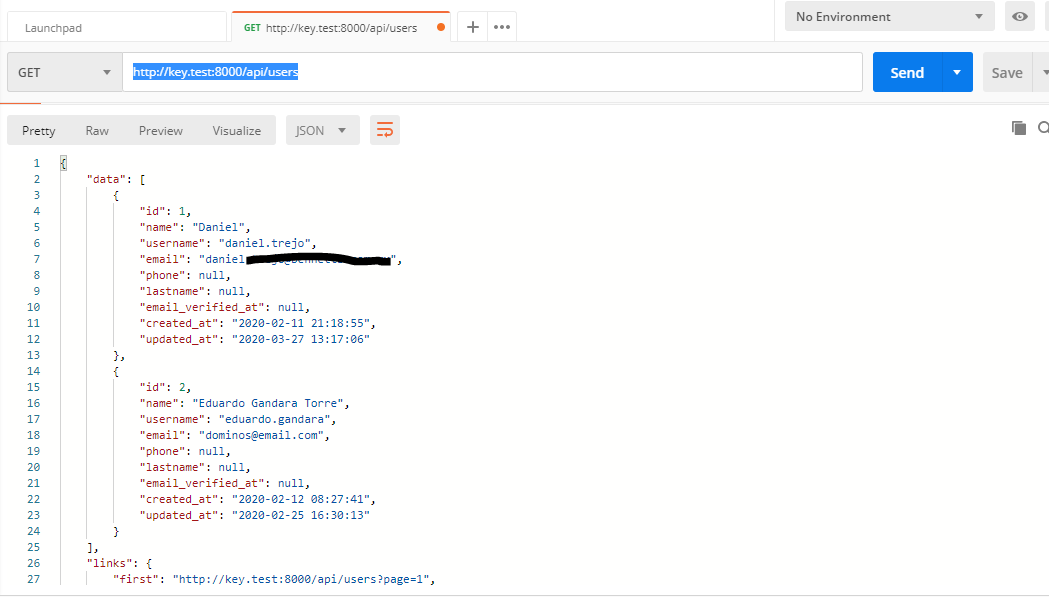En tu Resource Article
definelo de la sieuiente manera
<?php
namespace App\Http\Resources;
use Illuminate\Http\Resources\Json\ResourceCollection;
class Article extends ResourceCollection
{
/**
* Transform the resource collection into an array.
*
* @param \Illuminate\Http\Request $request
* @return array
*/
public function toArray($request)
{
return ['data' => $this->collection];
}
}
y une ejemplo de lo que te retornaira sera
{
"data": [
{
"id": 1,
"name": "Eladio Schroeder Sr.",
"email": "[email protected]",
},
{
"id": 2,
"name": "Liliana Mayert",
"email": "[email protected]",
}
],
"links":{
"first": "http://example.com/pagination?page=1",
"last": "http://example.com/pagination?page=1",
"prev": null,
"next": null
},
"meta":{
"current_page": 1,
"from": 1,
"last_page": 1,
"path": "http://example.com/pagination",
"per_page": 15,
"to": 10,
"total": 10
}
}
E intentado y creado una API de un sistema que ya tenia con los mismos elementos Resource y API y no tuve ningun problema con postman
y el codigo que use mas lo que te puse arriba dentro del resource
$users = User::paginate(2);
return new UserCollection($users);
mi archivo api
Route::get('users', 'Admin\UsersController@index');
Intente con JSONResource y no tuve ningun problema en obtener los datos
